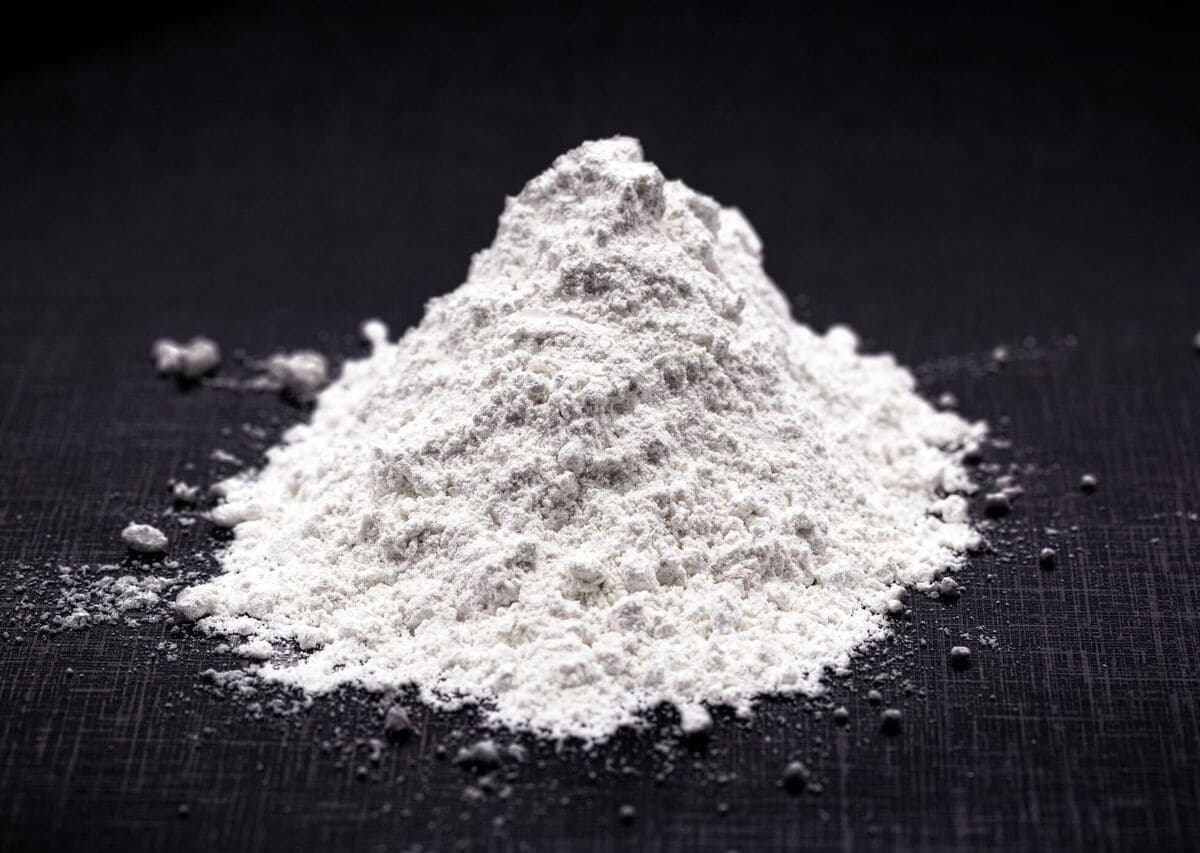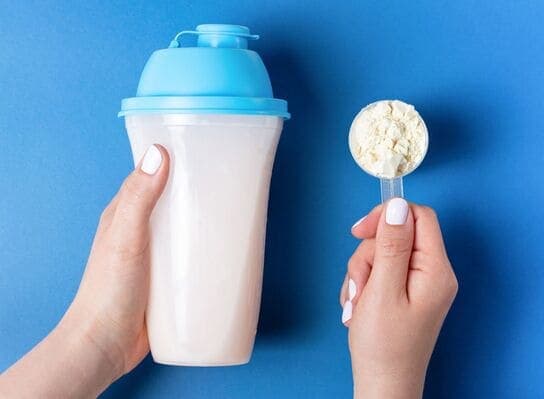Creatine Capsules vs. Powder: How to Choose the Best Creatine for Your Needs

February 12, 2024
Creatine is one of the most popular supplements among athletes, bodybuilders, and fitness enthusiasts—and for good reason. It's renowned for enhancing performance, increasing muscle mass, and boosting strength. But when it comes to choosing the best creatine, many find themselves torn between capsules and powder forms. Which one is more effective? How do they compare? And when should you use each type? In this article, we'll dive deep into the differences between creatine capsules and powder to help you make an informed decision.
Creatine Capsules vs. Powder: A Detailed Comparison
When it comes to selecting the best creatine supplement, the debate often centers around capsules versus powder. Both aim to deliver the same active ingredient—creatine monohydrate—but they differ in aspects like convenience, dosage, absorption, and cost.
Convenience and Portability
One of the biggest advantages of creatine capsules is convenience. Capsules are easy to carry, require no mixing, and can be taken on-the-go without any hassle. For those with busy lifestyles or who travel frequently, capsules offer a mess-free option. On the other hand, creatine powder requires mixing with water or a beverage, which can be less convenient, especially if you're away from home.
Dosage Accuracy
Creatine capsules provide precise dosing with each pill, eliminating the guesswork involved in measuring powder. This can be particularly beneficial for beginners who are unsure about how much creatine to take. However, you may need to swallow multiple capsules to reach the desired dose, as each capsule typically contains about 750 mg to 1 gram of creatine. In contrast, creatine powder allows for flexible dosing, making it easier to adjust your intake based on your specific needs.
Absorption and Effectiveness
Some users wonder whether there's a difference in absorption rates between capsules and powder. Scientifically, creatine monohydrate is absorbed similarly in both forms. The key is consistent consumption in the correct doses. However, mixing creatine powder with a carbohydrate-rich beverage can enhance absorption due to the insulin spike—a benefit that's not as easily achieved with capsules.
Cost Considerations
When evaluating the best creatine for your budget, cost is a significant factor. Generally, creatine powder is more cost-effective than capsules. You often get more servings per container with powder, making it a more economical choice for long-term use. Capsules tend to be pricier due to the additional manufacturing involved in encapsulating the powder.
When to Use Creatine Capsules vs. Powder
Deciding between creatine capsules and powder often comes down to personal preference and lifestyle. However, there are specific scenarios where one form might be more suitable than the other.
For Busy Lifestyles
If you're constantly on the move, creatine capsules might be the best creatine option for you. Capsules eliminate the need for mixing and can be taken discreetly at any time. This is particularly helpful if you have a hectic schedule or lack access to a shaker bottle during the day.
For Precise Dosing
Individuals who prefer exact dosing might lean towards capsules. Since each capsule contains a specific amount of creatine, you can easily track your intake. This precision can be crucial during the loading phase when higher doses are required.
For Cost Efficiency
If budget is a concern, creatine powder is generally the more economical choice. Athletes and bodybuilders who consume larger quantities may find that powder stretches their dollar further. Plus, powders often come in larger containers, reducing the frequency of purchases.
For Enhanced Absorption
Those looking to maximize absorption might prefer powder form. Mixing creatine powder with a simple carbohydrate beverage can enhance uptake into the muscles. This method is less feasible with capsules, as you'd need to take them with a sugary drink to achieve a similar effect.
Taste and Texture Preferences
Some people dislike the gritty texture or taste of creatine powder, even when mixed with liquids. Capsules bypass this issue entirely, providing a tasteless and texture-free experience. Conversely, if you enjoy customizing your shakes with flavors or additional supplements, powder offers that flexibility.
Addressing Misconceptions
A common misconception is that one form is superior to the other in terms of effectiveness. In reality, both capsules and powder deliver the same benefits when taken correctly. The best creatine form is the one that fits seamlessly into your routine, ensuring consistent use.
How to Choose the Best Creatine Supplement for You
Our Top Recommendations

Optimum Nutrition Micronized Creatine Monohydrate Powder
Micronized for easy mixing, supports muscle growth and endurance.
See on Amazon$0.35 per 5g serving

Nutricost Creatine Monohydrate Micronized Powder
Third-party tested, non-GMO, 5g of pure creatine per serving.
See on Amazon$0.2 per 5g serving

NSF Certified, supports muscle power and recovery.
See on Amazon$0.46 per 5g serving

ProMix Creatine Monohydrate Powder
Micronized, additive-free, ideal for performance and recovery.
See on Amazon$0.36 per 5g serving

NOW Foods Sports Nutrition Unflavored
100% pure creatine, GMP certified, boosts strength and endurance.
See on Amazon$0.2 per 5g serving
Selecting the best creatine supplement involves considering several factors beyond just the form it comes in. Here are some practical tips to help you make an informed choice:
1. Identify Your Goals
- Performance Enhancement: If you're aiming to boost athletic performance or increase muscle mass, ensure the creatine supplement is pure creatine monohydrate, the most researched and effective form.
- Convenience: If ease of use is a priority, opt for capsules for quick consumption.
2. Check the Ingredients
- Purity Matters: Look for products with minimal additives or fillers. The best creatine supplements list creatine monohydrate as the sole ingredient.
- Third-Party Testing: Choose supplements that have been tested by reputable organizations to ensure quality and purity.
3. Consider Your Budget
- Cost per Serving: Calculate the cost per serving to determine the most economical option.
- Long-Term Use: If you plan on using creatine consistently, buying powder in bulk can save money over time.
4. Evaluate Brand Reputation
- Read Reviews: Check customer feedback and reviews to gauge effectiveness and satisfaction.
- Company Transparency: Brands that provide clear information about sourcing and manufacturing practices are generally more trustworthy.
5. Decide on Flavor and Mixability
- Unflavored vs. Flavored: If you prefer mixing creatine with other supplements or beverages, unflavored powder may be best.
- Mixability: Some powders dissolve better than others. If texture bothers you, read reviews to find a powder that mixes smoothly.
6. Dosage Flexibility
- Adjustable Dosing: Powder allows you to adjust your dosage easily, which can be beneficial during loading phases or when tailoring your intake.
- Fixed Doses: Capsules offer fixed dosages, simplifying your routine if you prefer not to measure.
7. Consult a Professional
- Healthcare Advice: Before starting any supplement regimen, it's wise to consult with a healthcare provider or a nutritionist, especially if you have underlying health conditions.
- For more detailed guidance on dosage, check out our Comprehensive Guide to Creatine Dosing.
Conclusion
In the quest to find the best creatine supplement, understanding the differences between capsules and powder is essential. Both forms have their unique advantages, and the choice ultimately boils down to your personal preferences, lifestyle, and fitness goals. Creatine capsules offer convenience and precise dosing, making them ideal for those on-the-go or who prefer a straightforward supplement routine. On the other hand, creatine powder provides cost efficiency and dosing flexibility, which can be particularly beneficial for long-term use and tailored supplementation.
Remember, the most important factor is consistency. Whichever form you choose, regular intake is key to reaping the full benefits of creatine. So, assess your needs, consider the factors we've discussed, and select the best creatine that fits seamlessly into your lifestyle.






